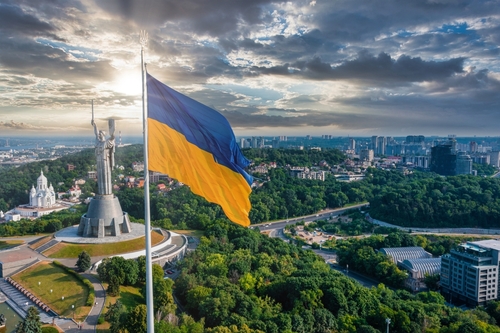Ukrainian President Volodymyr Zelensky voiced frustration after a high-profile visit from U.S. Secretary of State Antony Blinken, even though the United States and the United Kingdom pledged nearly $1.5 billion in additional aid. The disappointment stemmed from Kyiv's ongoing request for long-range missiles, which were not approved during the visit, leaving a critical gap in Ukraine's military strategy against Russian forces.
Despite the substantial financial commitment, Zelensky’s administration was hoping for a more decisive move regarding the use of U.S.-made long-range missiles, which could shift the dynamics on the battlefield. Zelensky remarked that while the aid was appreciated, Ukraine still awaits "strong decisions" on the missile issue, which for his country is of "paramount importance".
Vice President Kamala Harris have you ever met Putin?
Kamala: I’ve met Zelensky 5 times.
What??? pic.twitter.com/ieENYLZML2
— The Black Tucker Carlson Jr 🇺🇸 (@B1TuckerCarlson) September 11, 2024
Blinken, in response, acknowledged the evolving nature of the war and hinted that more military aid could be provided as circumstances change. However, no firm commitment on long-range missile authorizations was made.
Blinken did indicate that he would take Ukraine's requests back to Washington for further discussions with President Biden. This diplomatic exchange left Ukraine with what Zelensky likely sees as a delay in receiving the critical military support they had hoped for.
February 2022 : Kamala Harris met with Zelensky and gave a speech declaring Ukraine should join NATO. Russia invaded 4 days later declaring Ukraine joining NATO a direct threat to them.
She has no idea what she is doing pic.twitter.com/NpO06FTPfs
— Dee Dee Weeks (@DeeDeeWeeks) September 11, 2024
The aid package itself includes over $700 million from the U.S., designated primarily for humanitarian assistance and support for Ukraine's energy infrastructure, which has been under heavy bombardment by Russian air strikes. Lammy added nearly $782 million from the U.K., combining military and loan guarantees aimed at stabilizing Ukraine as it heads into a challenging winter.
Despite these contributions, Zelensky's concerns are not without merit. Ukraine's military has been seeking more advanced weaponry to push back against entrenched Russian forces. U.S. policy on long-range missiles remains cautious due to fears that they could be used to strike deep within Russian territory, potentially escalating the conflict to a broader international crisis. While the West is committed to supporting Ukraine's defense, there is clear reluctance in crossing certain military thresholds.
The Western nations, particularly the U.S. and U.K., are balancing the need to aid Ukraine while avoiding actions that could be seen as provocations by Russia. This tension was evident in Blinken's statements that any further military aid would be carefully calibrated based on developments on the ground and ongoing consultations with NATO allies.
As the war grinds on with no immediate resolution in sight, Zelensky’s disappointment underscores the growing impatience in Kyiv for more robust military support. With winter approaching and energy infrastructure already severely compromised, Ukraine is facing mounting challenges that financial aid alone may not be able to solve.




